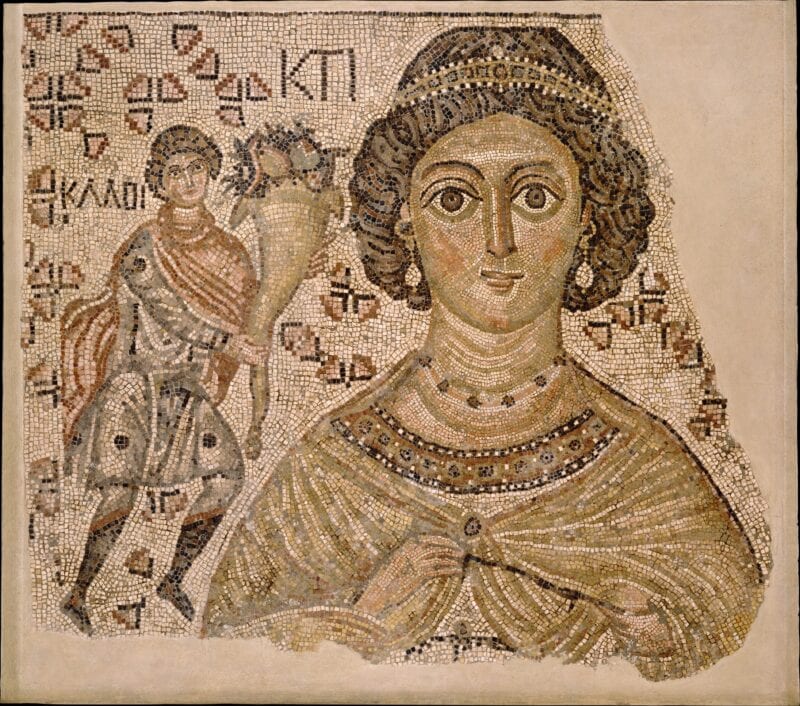Women in Ancient Rome and the Role of Women in the Roman Empire
The Role of Women in Ancient Rome was shaped by the historical context and societal expectations imposed on them. Throughout different periods of Roman history, women faced both limitations due to Roman law and opportunities bestowed on them by marriage. Women could play a crucial role in shaping Roman society. This article will explore the various aspects of The Role of Women in Ancient Rome, including their legal rights, notable figures, family and societal roles, education, and intellectual pursuits.
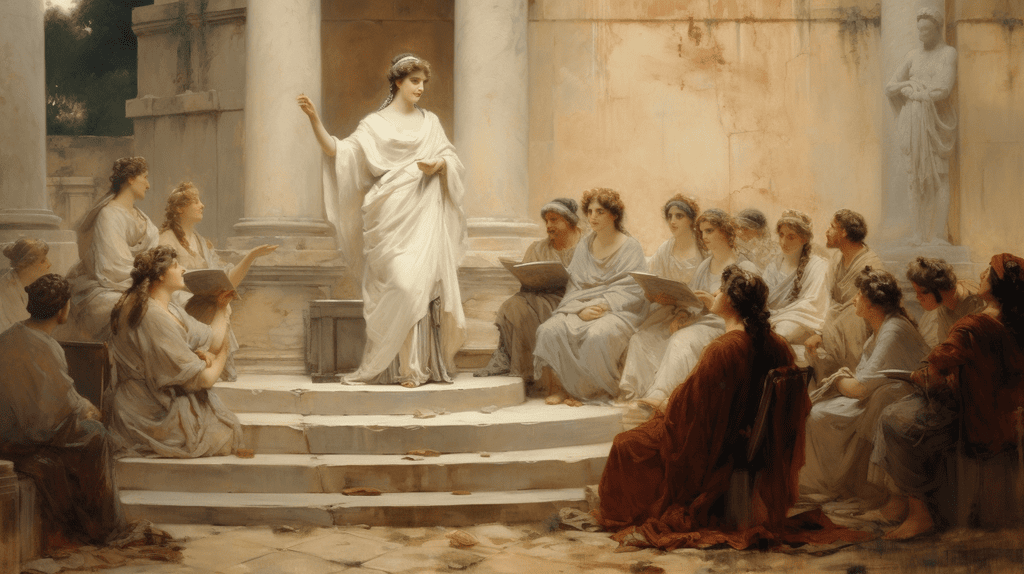
In Ancient Rome, women held a significant yet restricted position within society. They were expected to adhere to certain customs and limitations that were imposed on them by the patriarchal system. Despite these constraints, there were notable women who made significant contributions to Roman society and challenged traditional gender roles.
Notable figures such as Agrippina, Livia, and Cleopatra played influential roles in shaping Ancient Roman history through their actions and influence on politics, culture, and social norms. Their stories provide insight into the complexities of women’s roles in Ancient Rome and serve as examples of their impact on the society of that time period.
Powerful Women in Ancient Rome
The role of women in ancient Rome was often restricted to the domestic sphere, but there were several notable exceptions. Some women managed to exert influence beyond their traditional roles and contribute significantly to Roman society. Among these influential women were Agrippina, Livia, and Cleopatra.
Agrippina was a powerful figure in the early Roman Empire, known for her political prowess and her complex relationship with Emperor Claudius. She was the mother of Emperor Nero and played a key role in his rise to power, making her one of the most influential women of her time.
Livia, the wife of Emperor Augustus, was another prominent figure who exercised significant influence over Roman politics and public life. She was known for her intelligence and diplomatic skills, as well as her efforts to promote Augustan reforms and ensure the succession of her son Tiberius as emperor.
Cleopatra, though not technically Roman, played a crucial role in Roman history through her relationships with Julius Caesar and Mark Antony. Her alliances with these powerful men had far-reaching consequences for the politics of the Roman Republic and, later Empire.
These remarkable women challenged traditional gender roles by participating actively in political affairs and shaping important events in Roman history. Their stories provide valuable insights into the complexities of women’s roles in ancient Rome.
| Notable Women | Contributions |
|---|---|
| Agrippina | Political prowess and instrumental role in Emperor Nero’s rise to power. |
| Livia | Intelligence, diplomacy, and promotion of Augustan reforms. |
| Cleopatra | Alliances with Julius Caesar and Mark Antony impacted Roman politics. |
Legal Rights and Limitations of Roman Women in the Roman Empire
In ancient Rome, women’s legal rights and limitations varied significantly from men’s. Women were under the authority of their fathers or husbands, and they had limited legal rights in areas such as ownership of property, inheritance, and participation in public life. However, over time, their legal status evolved to some extent.
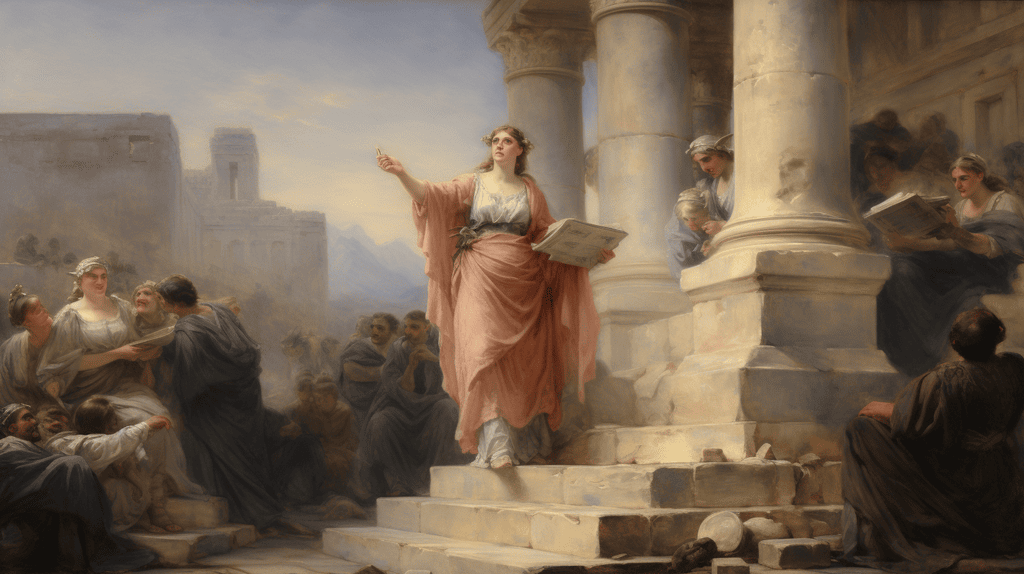
During the Roman Republic, women had very few legal rights and were mainly confined to domestic roles. They were not allowed to participate in politics or hold public office. However, as the empire expanded, there were some changes in women’s legal status. For example, women gained the right to own property and inherit from their families, although these rights were still limited compared to those of men.
One notable aspect of women’s legal rights in ancient Rome was that they did not have full control over their own finances. A woman’s financial transactions required the approval or involvement of a male guardian-her father if unmarried or her husband if married. This limitation on financial autonomy restricted women’s ability to conduct business or make independent decisions about their wealth.
Overall, while there were certain legal advancements for women in ancient Rome compared to earlier periods, their rights remained constrained by patriarchal societal norms and structures that favoured men. Despite these limitations, some influential women managed to wield significant influence and challenge traditional gender roles within the confines of their legal restrictions.
| Legal Rights | Limitations |
|---|---|
| Evolved over time | Under male authority |
| Gained property ownership | Limited financial autonomy |
Roles of Women in the Family and Society
The role and status of women in family Dynamics and Marriage
In ancient Rome, women played a crucial role within the family structure. Their primary responsibilities included managing the household, raising children, and ensuring the smooth functioning of domestic affairs. Additionally, women were also expected to uphold the moral values of the household and act as a symbol of Roman virtue.
One of the most significant duties for women was to secure a suitable marriage that would benefit not only themselves but their families as well. Marriages were often arranged by families and served as a means to form political alliances or consolidate wealth.
Women and their role in participation in Religious and Social Events
Despite the societal limitations placed on them, women in ancient Rome actively participated in religious ceremonies and social events. They played an essential role in religious rituals, including offerings and prayers made at home altars dedicated to various deities.
Women also took part in public religious festivals, albeit with some restrictions on certain roles within those events. In terms of social events, while men primarily dominated public gatherings such as political assemblies and business dealings, women had their own social networks where they could engage with each other outside of their domestic spheres.
Vestal Virgin’s role in public life
The vestal virgins were a selection of six women who served as priestesses for the goddess Vesta. The women were expected to serve for thirty years, and their public role was the ensure the scared flame of Rome in the temple of Vesta never died out. The vestal virgins were a key component of Roman religion, for Vesta was the Goddess of the hearth and the Roman household.
Engagement in the Public Sphere
While ancient Roman society was largely patriarchal, there were instances where women pushed boundaries to engage in public life. Some wealthy women used their social status and connections to influence political decisions or advocate for causes they believed in. Additionally, during times of war or crisis, women often took charge of family affairs, property management, and even business operations while men were away from home. This type of agency allowed some women to exercise authority beyond traditional gender roles.
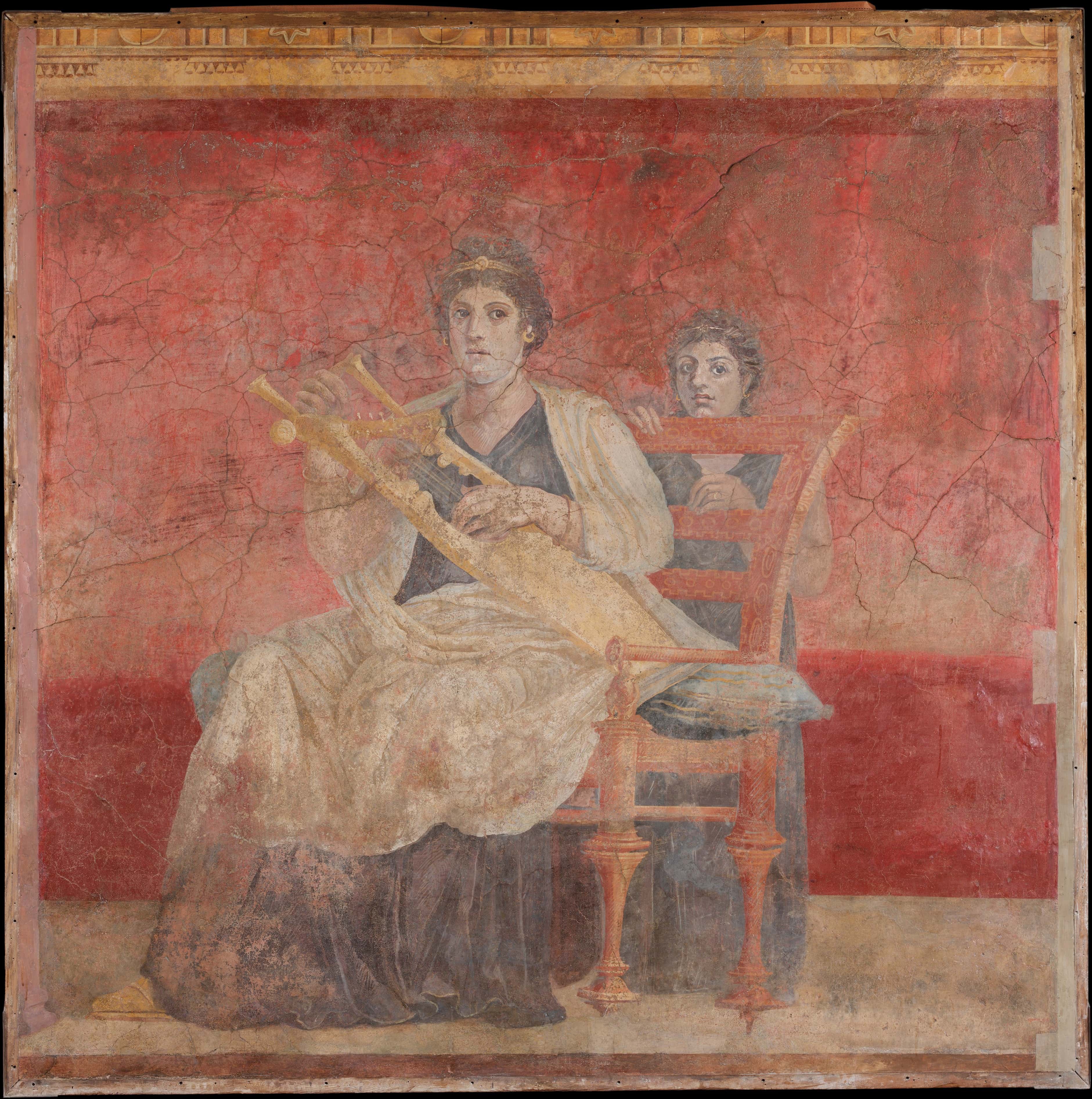
As evident from these examples, despite being subjected to societal expectations and limitations, women played an influential role within the family structure and broader society of ancient Rome. Their contributions have had a lasting impact on our understanding of gender roles and continue to shape conversations about women’s rights today.
Role of women in ancient Education and Intellectual Pursuits
In ancient Rome, women’s role in education and intellectual pursuits was largely limited by societal expectations and restrictions. While boys were prioritized for formal education, some wealthier girls were given the opportunity to receive an education in basic reading, writing, and arithmetic.
However, this education was primarily focused on preparing them for their roles as wives and mothers rather than for intellectual or professional pursuits. Despite these limitations, there were a few notable exceptions of women who made significant contributions to Roman intellectual life.
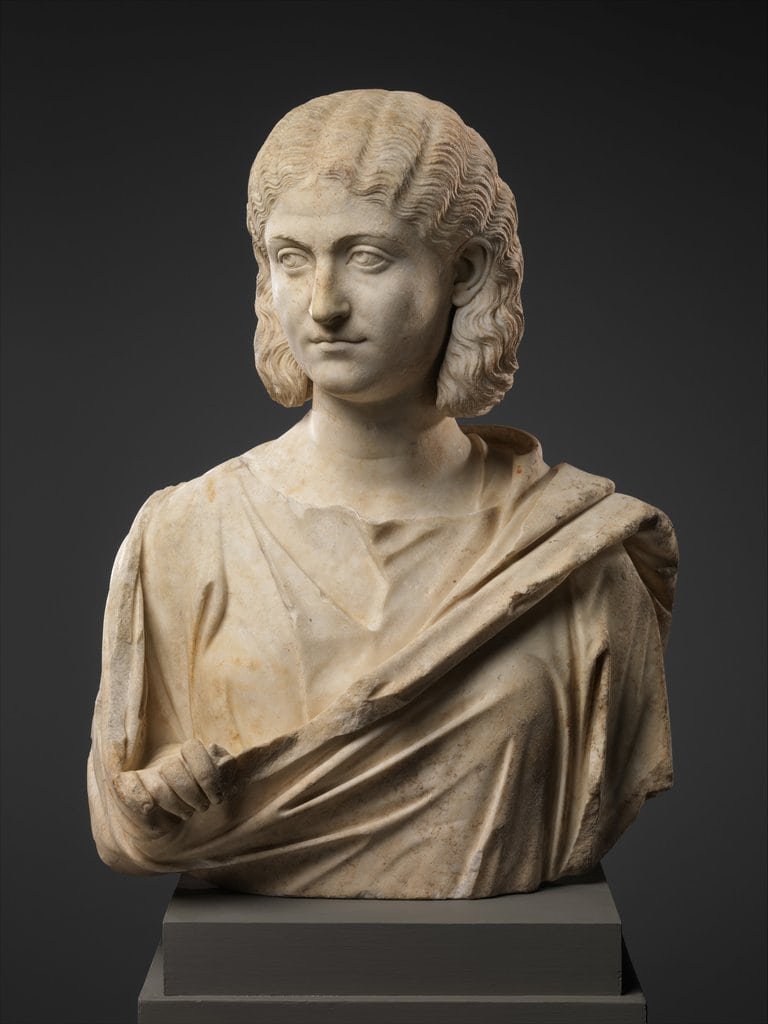
One such example is the poet Sulpicia, who lived in the 1st century BCE. She was one of the few female poets whose work survived from ancient Rome.Her poetry reveals a sophisticated understanding of literary techniques and themes, debunking the misconception that women in ancient Rome had no intellectual capabilities.
Additionally, there were a handful of wealthy and privileged women who were able to pursue more advanced studies in rhetoric, philosophy, and literature.Although opportunities for formal education were limited for most women in ancient Rome, they still found ways to engage in intellectual pursuits through informal means.
Many women participated in philosophical discussions within their social circles and contributed to the development of ideas without formal recognition. It is important to recognize these overlooked contributions when discussing women’s role in shaping Ancient Roman society.
Legacy and Impact
Women’s role in ancient Rome had a significant impact on future generations and societal norms, shaping the modern understanding of gender roles and women’s rights. The legacy of influential women in Ancient Rome continues to inspire and empower women today, highlighting their resilience, intelligence, and contributions to various aspects of Roman society.
Notable Women in Ancient Rome:
- Agrippina: Agrippina, the wife of Emperor Claudius and mother of Emperor Nero was a powerful figure who played a crucial role in shaping Roman politics. She defied societal expectations by actively participating in political affairs and exercising considerable influence over her husband and son.
- Livia: Livia, the wife of Emperor Augustus, is renowned for her political acumen and strategic foresight. She actively participated in decision-making processes and promoted the interests of her family, leaving a lasting impact on the governance of the Roman Empire.
- Cleopatra: Although Cleopatra was not Roman by birth, her relationship with notable Romans such as Julius Caesar and Mark Antony significantly influenced the political landscape of Ancient Rome. Her intelligence, charisma, and diplomatic skills challenged traditional gender roles and expanded the scope of women’s influence in historical events.
The enduring legacy of these influential women serves as a testament to their ability to challenge societal expectations and contribute meaningfully to various spheres of Ancient Roman society. Their actions continue to inspire contemporary discussions about gender equality and the empowerment of women in all aspects of life.
Conclusion
In conclusion, the role of women in Ancient Rome was multifaceted and complex as they navigated societal expectations and limitations while also leaving a lasting impact on Roman society. Despite facing legal restrictions and being relegated to traditional roles in the family, women such as Agrippina, Livia, and Cleopatra challenged these norms and made significant contributions to Roman society. Their influence extended beyond their own time period and has shaped our modern understanding of gender roles and women’s rights.
Throughout different periods of Roman history, the legal rights of women evolved, reflecting the changing dynamics of society. While opportunities for education and intellectual pursuits were limited for most women, there were still notable female writers, philosophers, and scholars who left a mark on history. Their contributions have demonstrated the resilience and determination of women to overcome societal barriers.
As we continue to reflect on the significance of women’s role in shaping Ancient Roman society, it is important to acknowledge the lasting impact they have had on future generations. By recognizing their contributions and challenging traditional gender roles, we can gain a deeper understanding of the complexities of ancient civilizations and appreciate the vital role that women played in shaping history.
It is through studying these historical narratives that we can further advance discussions on gender equality and promote inclusivity in our modern societies.
Frequently Asked Questions
What Was Life Like for Girls in Rome?
Life for girls in Rome was very different depending on their social status. Girls from wealthy families received education and could participate in social events. However, girls from lower classes were expected to focus on domestic duties.
Which Roman Emperor Married His Mother?
The Roman Emperor who married his mother was Gaius Julius Caesar Augustus Germanicus, also known as Caligula. He had a close and inappropriate relationship with his mother, Agrippina the Younger, which ultimately led to her murder.
How Were Slaves Treated in Ancient Rome?
Slaves in ancient Rome were treated as property with no rights. They were often subjected to harsh physical punishment and had no control over their own lives. However, some slaves could earn or buy their freedom.
How were Vestal virgins perceived in society?
Vestal virgins had a powerful position in Roman society, much different to the average Roman woman and were bestowed with many rights and honours.
How Were Ancient Roman Girls Treated?
Roman girls were valued for their ability to bear children and manage household duties. Depending on their family’s social status, they could receive an education or be expected to marry young and focus on domestic responsibilities.
